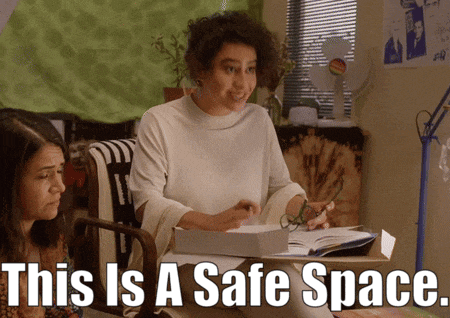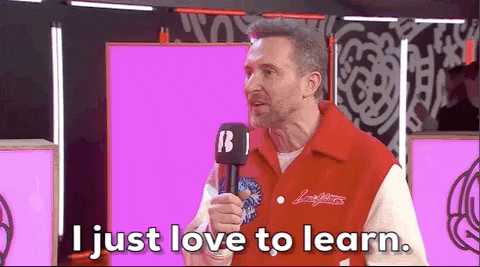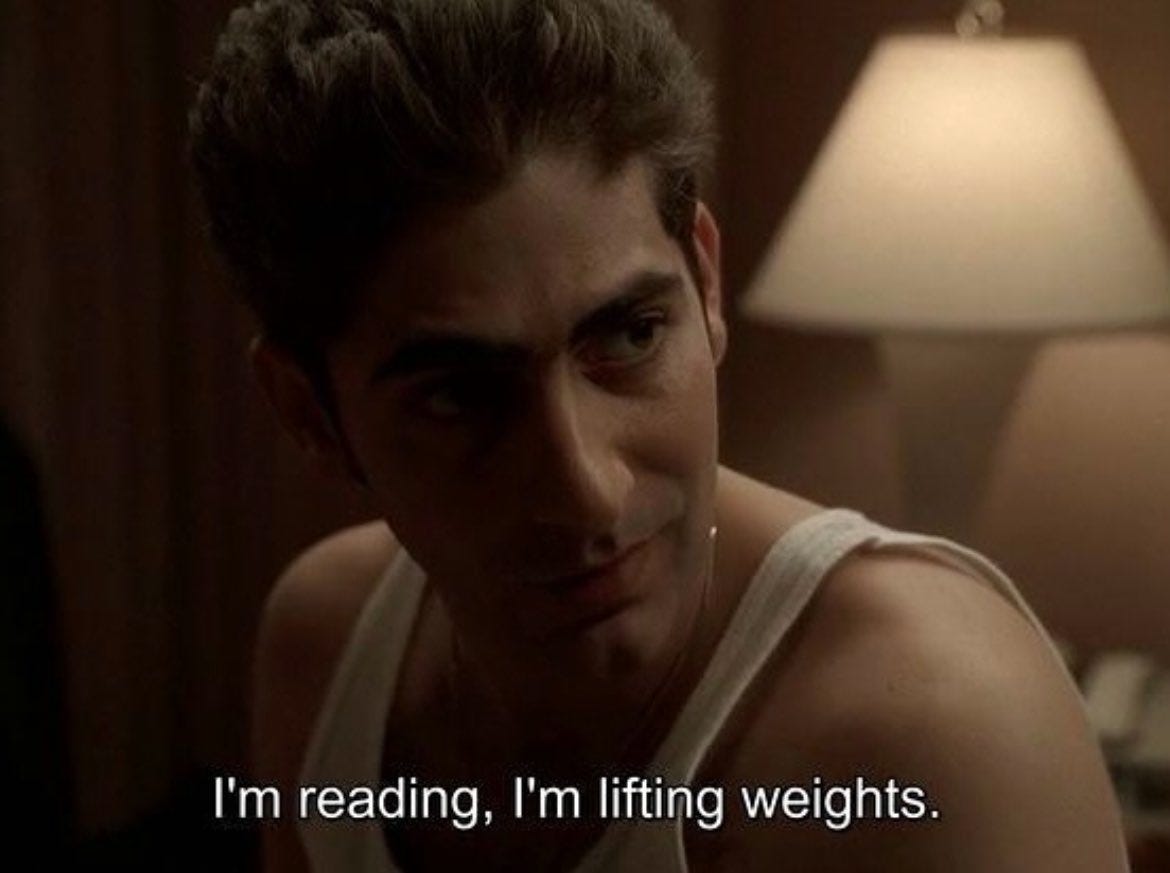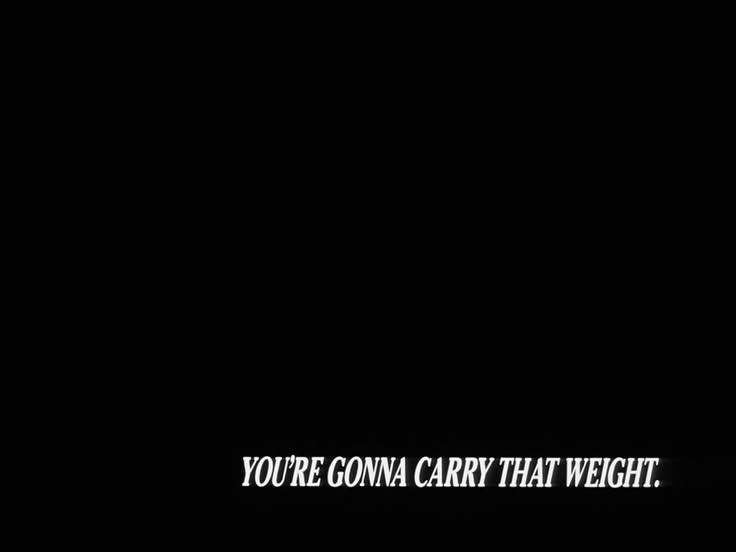Just Because I Carry It Well, Doesn't Mean It's Not Heavy
To those who began 2025 at rock bottom: I feel you.
Up until last year, I’ve been living my dream life.
I, a snot-nosed boy from Indonesia, have been living and working abroad in Australia—and not just at some random minimum wage job, but my dream job: facilitating collaborations between artists, scientists, and technologists.
Art and tech are already exciting on their own, and I got to work at the intersection—where the sparks are the brightest. How many people can say that they live at this exciting nexus? I knew I was incredibly lucky.
On the side, my writing career was also taking off. In January 2024, I launched my debut book in Jakarta. A few months later, I was invited to contribute to an art exhibition and film screening program in Adelaide. I had side projects, creative gigs, and a steady income doing what I loved.
To top it off, I met someone who would soon become my girlfriend. We were smitten since our first encounter, and I felt a stronger connection with her than with all the other women I’ve dated before. I genuinely thought she was the one. The last piece of the puzzle.
All my life, I’d pray to God for money, love, strength, success, what have you—but at that moment, I stopped asking for anything. For the first time ever, I felt that I had everything I wanted. I was truly content. My prayers went from “God, please give me X,” to simply, “Thank you, God. I’m blessed.”
But I was fooling myself thinking it would last forever.
Less than a year later, everything fell apart.
My Sisyphean Fall
I’ve always identified deeply with Albert Camus’ Sisyphus—condemned to push a rock uphill for eternity, only to watch it fall to the bottom every time he reaches the summit, repeating the process ad infinitum.
Late 2024 was the moment my rock rolled downhill.
First, I got evicted from my rental. My landlord needed my room, so I had to look for another place to live. In Australia’s housing crisis, finding a suitable and affordable place is a tall order, but I still tried to look.
But then, I also lost my job—and with it, my Australian visa. Never mind finding a new rental. I was forced to leave the country I’d called home for the past five years. I had to return to Indonesia, with no idea what to do next.
The troubles didn’t end there. Not long after I left Australia, my girlfriend—the one I thought was my soulmate—dumped me. I’m sure she had her reasons, but the timing couldn’t have been worse.
In one fell swoop, I lost my home abroad, my dream job, and the person I loved. I might’ve been able to handle these problems one at a time—but simultaneously? The weight of it all was crushing.
By January 2025, I hit rock bottom. I was stuck in a sea of uncertainty and emotional wreckage. And it didn’t help that I returned to Indonesia when it was going through one of its roughest periods in years.
The political and economic climate was bleak. With the rise of Prabowo’s administration, mass layoffs, inflation, and controversial policies like the RUU TNI, the atmosphere felt suffocating. The job market was dismal. The future, grim. Trying to rebuild my life felt like swimming upstream in a storm.
When you’re at your lowest, it’s hard to imagine ever finding your way out. Each day felt like a battle just to stay afloat.
And when I say “rock bottom,” I don’t say it lightly. I know others out there have it worse. I still had a roof over my head and food to eat—many don’t. Everyone’s version of rock bottom looks different.
That said, I have to acknowledge my privileges and problems equally. I think that’s the wisest lens to view life through. And my problems are as valid as any.
A year ago, I had everything, and I lost it all through no fault of my own.
I was simply a victim of circumstance—like Sisyphus, I tried my best to push my rock uphill… but I’m at the mercy of the gods and their machinations.
And now, my rock is back at the foot of the mountain.
Healing Is Not a Magic Spell—It’s a System
When you’re hale and hearty, your desires are boundless. You crave everything in the world and more. No amount of money, no heights of fame, no degree of adoration could ever sate your greed.
But when you’re sick or wounded, you only have one wish: to alleviate the pain. You’ll pay any price as long as you can heal.
And no, I’m not an influencer. Healing, to me, does not mean “booking a trip to Bali and getting a spa massage.” Here, I use the word in its original meaning: recovering from a wound.
For me, healing isn’t a dramatic breakthrough. It came in small, repeated actions—each one seemingly insignificant but powerful in aggregate.
As James Clear wrote in Atomic Habits:
“You don’t rise to the level of your goals. You fall to the level of your systems.”
To get my life back on track, I devised a system. A set of small actions that compound over time, moving me in the right direction a little bit every day.
I’ll lay my system out here for your reference, in case you’re going through a rough patch too. Hope it helps.
1. Therapy
The first thing I did was go to therapy.
I’ve been to therapy a few times before, and if I’m being completely honest, I think therapy is useless for the most part. I’ll tell you why.
Don’t ask me for a source (feel free to do your own research), but I’ve read somewhere that the typical form of therapy we know today—the “talking about feelings” type of deal—was initially devised for women. It seems there’s a gender bias in modern psychotherapy.
When in psychological distress, many women simply want “to feel heard,” which most therapists can provide well. Men, on the other hand, tend to need a more pragmatic and actionable approach.
While feeling heard is nice, men tend to prioritize “problem-solving” more than anything else. Often, the only thing that makes men feel better is working to solve whatever bothers them instead of just talking about it.
So, if I think therapy is so useless, why would I go, you might ask?
Well, as a man, I think there’s a specific situation where therapy helps, and that is when you feel completely hopeless about your life and have no idea what to do. In this situation, problem-solving is impossible—things like severe depression and suicidal thoughts hinder your ability to think logically, so you have to clear your head first. Talking about feelings does help with that.
I should note that my therapist is a man, too, so he could understand and relate to my problems better, and offer more effective and practical solutions.
All the therapists I’ve been to before were women, and all they could offer me were cliché therapyspeak like “This is a safe space” or “That must be so hard for you.” I know they mean well, but I needed more than that.
So, in a nutshell, therapy helps, but your choice of therapist matters. First of all, they have to be competent. Then, if possible, find a therapist who’s the same gender and similar age range as you, so they can understand your situation on a personal level and tailor their approach properly.
I went to weekly therapy for 3 months, then decided I had recovered enough for the time being. Therapy helped me get from 0 to 10%, but as my mental health improved, the returns started to diminish, so I decided to focus my time on other actions with higher ROI.
I’ll tell you what they are. Keep reading.
2. The Gym
You probably saw this one coming, didn’t you?
I’d been casually going to the gym since 2020, but I’ve been doing it mostly haphazardly. I used to only go 1-2 times per week because my body would get sore for days after every session—it wasn’t used to exercising after years of sedentary living. I also didn’t follow a program and just did random workouts. And I didn’t hire a PT because I don’t have the money to spare.
Over time, I learned how to gym better. I learned mainly through YouTube and by asking my more experienced friends. Eventually, I got so addicted to the gym that I had to force myself to take rest days.
After my downfall, I became even more obsessed.
I’d go every single day, come hell or high water. I kept increasing my weights and reps and pushed my limits as far as I could. I dare say, every session was fueled with indignation and rage against existence itself. Just like this guy:
Before you dismiss this as a gymcel’s incoherent ramblings, I want you to know one crucial thing.
People often talk about the physical benefits of going gym (getting stronger and healthier, looking better, etc.), but I’ve barely heard anyone talk about its psychological benefits, even though they’re just as important, if not more.
Here’s my take: It’s the sense of control.
At this stage in my life, everything was going wrong:
I loved my girlfriend so much, and she still dumped me
I’ve been applying to jobs for months, and I’m still unemployed
I tried my best to be a law-abiding citizen, but where I live, the lawmakers are so corrupt that nothing I do really matters
My point is, you could do everything right, and things could still go wrong.
The gym is the only place where if you do the right things, you will be rewarded with the right results, without fail. No matter how bad your program is, as long as you’re consistent and disciplined, you will see your body get stronger, and you will feel better in your own skin. It’s inevitable.
In a world where everything is volatile, the gym operates under a very simple input = output equation. In this one place, this sanctuary, your destiny is literally, tangibly, utterly shaped by your own hands—and that sense of control does wonders for your mental health.
If there’s only one thing you learned from this essay, I hope it’s this.
Hit the gym.
3. Learning New Skills
Since I’m training my body, I might as well cultivate my mind.
This vacant period of my life served as an opportunity to reassess my career aspirations. I’ll be 29 years old this year, and since getting my bachelor’s degree 7 years ago, I’ve gone through several career changes:
I began my career as an urban planner, and that only lasted a few months. I didn’t enjoy the industry, but this experience honed my research and analytical skills, which I still use to this day.
I stopped denying my passion, and went through an experimentation period where I tried a range of creative jobs: event organizer, photographer, graphic designer, and writer. As evident through this Substack newsletter, the last one is the one that sticks.
Even after deciding that writing is my forte, I still had to explore what type of writing suits me the most. I produced all sorts of writing from social media copy, blog articles, essays, research papers, and even a full-length book. I’ve been a copywriter, content writer, and at my last job at the art-tech organization, I was a communications specialist.
While some people may see this career path as flaky, it has shaped me into a person who’s very comfortable with starting over. My experiences have fully taught me the Sisyphean nature of human work—reaching the top, then restarting from the bottom. Zero to one, to zero again. Rinse and repeat.
The traditional “climbing the corporate ladder” path really isn’t relevant to me. At all. It may be comforting to think of your career as a “linear progression,” but in my dictionary, there’s no such thing.
The human experience is not linear. It’s supposed to be messy.
And so, once again, I’m considering a career change, which means I have to learn a new skill set all over again.
My eyes are now set on the tech industry, and with my writing acumen, my research suggests that the most fitting tech role for me would be UX writer, which is a subset of UX design—the discipline of designing digital products like websites and mobile apps. I took several UX courses online and am now enrolled in a UX boot camp. We’ll see how it goes.
It’s not easy to shift careers again at this age, but I’m doing it anyway.
Approaching 30 always felt so scary for me. I’ve always thought it would be the cut-off age where I must have my life figured out. But there’s really no basis for it. 30 is just an arbitrary number that our ageist generation decided is “old,” which, if you think about it, is absurd.
If anything, I should brace myself to still be restarting from zero and learning new stuff until I’m a decrepit grandpa. We only live once, which means everyone’s life is a trial run. We’re all just rawdogging it.
Literally nobody knows what they’re doing, and that’s okay.
The best thing to do—the only thing to do—is to learn as we go.
4. Building a Business
All my life, I’ve shied away from entrepreneurship. I’m not sure why.
The idea of “being your own boss” is appealing, but the reality isn’t as straightforward. It’s confusing. No one tells you what to do, and you have to figure it out yourself. Following instructions is so much easier.
I’ve always wanted to build a business, and I do think that entrepreneurship is (arguably) the best way to build true wealth. But I lacked the drive to actually get started—until recently, when a friend reached out to me.
She’s building a design studio with her brother, and is gathering a team. I’m not so good at visual design, nor business, but I have a way with words, so I joined as a copywriter. I kinda still feel out of place, though.
As a writer with a STEM background working among creative designers, I often feel like I’m too stiff and too serious to be in this field… but hey, let’s just say that gives me a different flavor. That makes me a great devil’s advocate, always offering the most contrarian perspectives.
Running a business is hard. Finding clients, networking, and pitching are such hassles. Working for free during quiet periods doesn’t feel so good. But it beats breaking your back for a soulless corporation any day of the week.
Entrepreneurship isn’t for everyone. Honestly, I’m still not sure if it’s for me. But I see the tremendous value of building something from the ground up. It doesn’t have to be a business, but you have to build something—a family, a magnum opus, whatever. Just build something, bro.
You need to experience what it feels like to nurture something from the ground up and watch it grow. There’s no other feeling like it.
Shameless plug: Need help with visual design, branding, illustration, or motion graphics? Email us at tempotroupe@gmail.com! Check out our work here.
Alright, back to the story.
5. Connecting, Vulnerably
To me, the worst part of hitting rock bottom has to do with identity.
Simply put: Losing everything that (you think) defines you, makes you question who you are.
All my life, I’ve always been the “reliable older brother.” As the eldest son with three younger siblings, I’ve always tried to be a superhero in front of my family. I wanted to be someone they could rely on. Someone that gives them peace whenever I’m around, because I can take care of everything.
This identity also trickles down to my other relationships. Even among my friends, I’m often seen as a big bro figure. They come to me for advice and to ask for help. Sometimes even just for a hug.
And while I don’t always think I deserve to be a role model, being looked up to can give you a unique kind of strength. When someone younger or smaller looks at you in such a bright light, you naturally feel a drive to fulfill their expectation. You don’t wanna disappoint them, so you do your best.
It’s a different kind of expectation than the ones that come from your parents or bosses. Pressure from above suffocates you, but pressure from below lifts you up. That’s why I love being the big bro figure, not just in my family but in every social circle I’m part of.
But right now? I don’t feel like the person they think I am.
I try so hard to maintain a perfect image in front of my family and friends, but my current situation has made that kinda impossible. How can I look perfect when I lost my job, have no income, and got dumped by my girlfriend?
Hearing me talk about this, my therapist said something that struck a chord. He said that humans connect through vulnerability, not perfection. Perfection inspires awe, but vulnerability builds connection.
That reminds me of a quote by Sōsuke Aizen:
“Admiration is the furthest thing from understanding.”
We admire people who embody our ideals. We think of them as perfect—almost godlike. And we strive to be admired ourselves.
The thing is, admiration creates distance. The more we admire someone, the less we understand them. By definition, understanding someone requires perceiving their flaws. This is why imperfect characters are more compelling: they’re easier to identify with. We see our own humanity in them.
Maybe that’s what I need to learn right now—to be at peace with being a deadbeat. Maybe there’s more courage in admitting you need help than in acting like you don’t need help when you actually do.
This is easier said than done. I know for a fact that there are people out there who only see your flaws as opportunities for exploitation.
It’s hard finding people you can trust. The good news is, sometimes they’re closer than you think (boys, if you’re reading this, I appreciate you).
Putting It All Together
Even with all these efforts and strategies, most days I still rot in bed. I still doomscroll. I still pull all-nighters for no reason. I still feel like shit every time I wake up in the morning. And I ponder, like Camus:
“Should I kill myself, or have a cup of coffee?”
Every single day (thus far), I would choose the coffee.
Regardless of how I feel, I’d put on my big boy pants and do what I gotta do. I guess I just wanted to prove to myself that I’m a man of action. My life is in shambles, after all. I couldn’t just stay still and do nothing.
I may not have all the answers, but I’m building a system. It’s like grinding in an RPG—completing side quests, stacking EXP, leveling up:
Therapy nurtures my soul
Going gym strengthens my body
Learning new skills expands my mind
Building a business increases my wealth
Connecting vulnerably fortifies my relationships
With this system in place, life stopped being a puzzle to solve and became a simple numbers game, where healing is practically inevitable as long as you keep showing up. Input = output. What you give is what you get.
As Alex Hormozi said:
“You don’t become confident by shouting affirmations in the mirror, but by having a stack of undeniable proof that you are who you say you are.
Outwork your self-doubt.”
I could almost turn off my brain and just go through the motions.
And so, every quest I complete rewards me with a morsel of undeniable proof. I throw each one onto my stack—it’s growing, and once it gets tall enough, my self-belief will become so irrefutable that no doubt could creep back in. After all, who could argue with cold, hard proof?
With the right system, healing is only a matter of time—exactly as the age-old proverb tells us: “Time heals all wounds.”
Coda
Just before I left Australia, I stayed at my best friend's place.
We talked all night. Amid the conversation, she asked me, “Bro, how are you feeling? Are you still sad? If you are, you sure don’t look like it.”
I laughed, amused at her comment.
All things considered, I guess I’m handling my downfall pretty well, huh? But the burden I’m lifting is no joke—and just because I carry it well, doesn’t mean it’s not heavy. A lesser man may well crumble under the same weight.
I’m not fully healed yet. I haven’t found a new job. I haven’t found a new girlfriend. I’m still far from where I want to be. But I’m no longer at rock bottom. If I had to measure it, I’d say I’ve gone from 0% to maybe 20%.
It’s not much, but it’s a start. And right now, that’s enough.
It’s not about how fast I get there—it’s about building a system that keeps pushing my Sisyphean rock uphill. One step at a time. One gym session at a time. One job application at a time. One act of kindness at a time.
Eventually, I’ll get back to 100%. Then I’ll fall to 0% again. It doesn’t matter.
The absurd hero laughs in the face of his ordeal, and defies the gods with a persistent, paradoxical joy. Sisyphus is still pushing his rock. As am I.
I’m gonna carry that weight.









